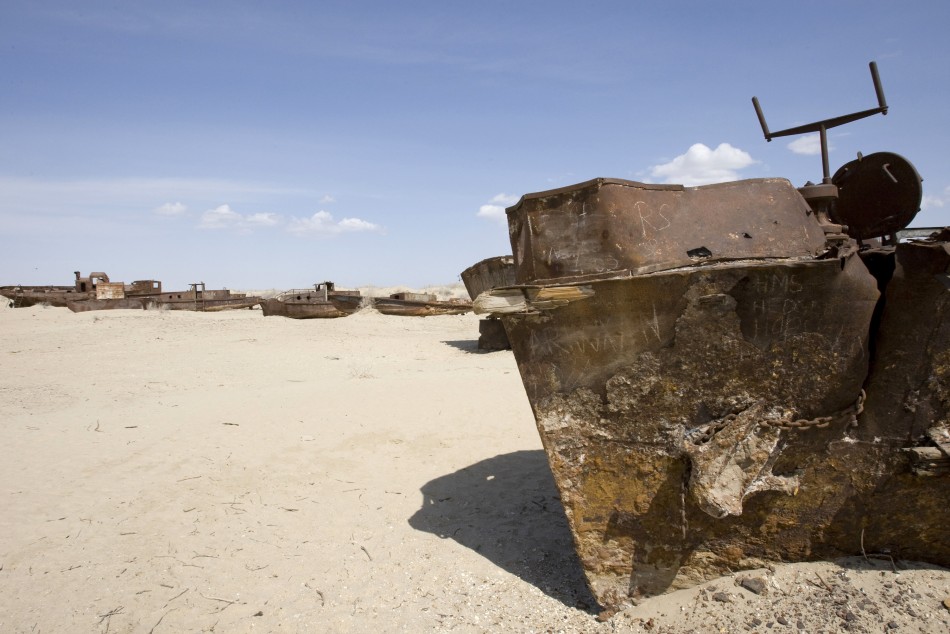Desert Ships: The Story of a Shrinking Aral Sea [PHOTOS]


This is a warning to the world... to preserve their natural resources before they destroy their lands.
What was once the world's fourth-largest lake has now turned into a desert!
Abandoned rusty ships lie derelict on cracked, sandy soil, as camels slowly trudge past.
The Aral Sea once had a flourishing fishing industry that employed roughly 60,000 people during the early 1960s; this figure reportedly shrunk by 90 per cent over the next 50 years, in what has been called as one of the planet's most "shocking environmental disasters". By 1977, fish harvest declined 75 per cent and by the early 1980s, it disappeared, according to a study from NASA.
The main cause of the drought was the water diversion project instituted by the former Soviet Union, on the arid plains of Kazakhstan, Uzbekistan and Turkmenistan. The region's two major rivers, fed by melting snow and precipitation in faraway mountains, were used to transform the desert into fields capable of growing cotton and other crops.
The problem was that the irrigation practices led to the devastation of the Aral Sea. It also had a noticeable effect on the region's climate. The harvest season became shorter and shorter, causing farmers to switch from cotton to rice, which demands even more water to grow.
In his visit in April, the former United Nations Secretary-General Ban Ki-moon, advised central Asian leaders to step up efforts to solve the problem.
"it is clearly one of the worst disasters, environmental disasters of the world. I was so shocked," he was quoted as saying in the Daily Mail.
However, Philip Micklen, a geographer who has been studying the Aral Sea for decades, has been quoted on NASA's Earth Observatory Web site as saying it won't dry up completely. His argument is that the sea is still fed by water from traditional sources, as well as irrigation run-off and ground water.
Unfortunately, the point is that so wonderfully large a water resource ought to have been more carefully used... it is little solace that the Aral Sea will not completely dry up (if that is indeed accurate)... it did not deserve to shrink to the size it has.
Check out these photographs showing the shrinking of the Aral Sea over the years...
© Copyright IBTimes 2025. All rights reserved.






















